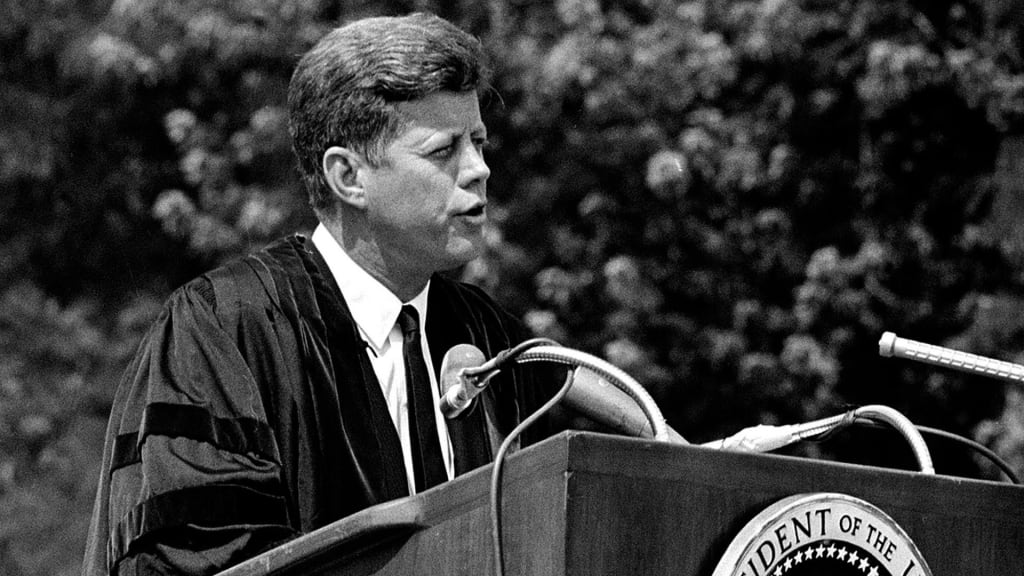The 1960s was a time of change.
Tensions reached new heights due to marches on civil rights, women’s rights, the never-ending war in Vietnam and farmworker conditions. Although the majority of these movements began peacefully, the ongoing hostility from those opposing made violence inevitable.
No one exemplifies this tragedy-stricken decade like the Kennedys. And at the centre of it all lie John Fitzgerald Kennedy. Even though he’s been gone for over 50 years, his memory remains engraved in our minds. Shortly after his 101st birthday, we remember how JFK’s legacy has stood the test of time.
His Childhood
John was the second child of Joseph P. Kennedy Sr. and Rose Kennedy. He grew up in a wealthy family with eight brothers and sisters. Behind his relatively carefree adolescence was a looming secret kept from the public until after his death; he was horribly sick. Plagued with chronic and severe back pain and Addison’s disease, a rare endocrine disorder, it was unlikely he would live a full life.
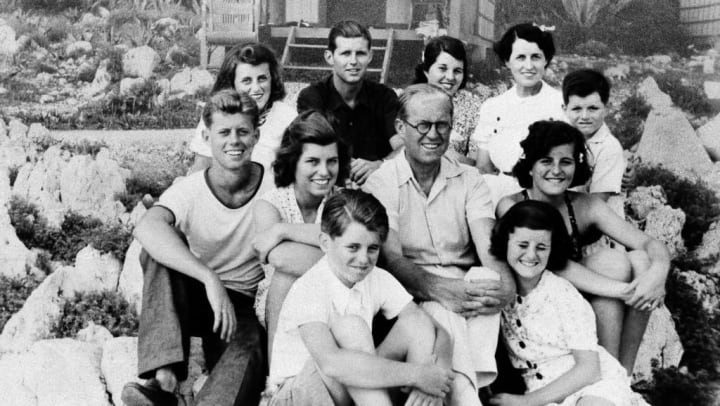
With mortality always on his mind, he wanted to live his life to the fullest. He graduated from Harvard University in 1940 with the hopes of pursuing a career in journalism before joining the U.S. Naval Reserve the following year. Despite his poor health, John made it his mission to serve in World War II.
With the assistance of his father, John was finally shipped off to join PT-109 in 1943. He went on to become a war hero after rescuing his crew from their boat that had been split in half by an enemy destroyer. Once the war ended, it was time for John to sort out what his career was going to look like.
His Political Career
After his own political career plummeted, Joe Sr. always wished his eldest son would become President of the United States. It was now up to John to carry out his father’s dream since his older brother, Joe Jr. died in WWII.
Jack, as he was known to most, began his political career by representing the 11th congressional district of Massachusetts in the United States House of Representatives from 1947 until 1953. For seven years after that, he was the Senator of Massachusetts. When running for president in 1960, he just narrowly managed to beat former vice-president and Republican Richard Nixon.
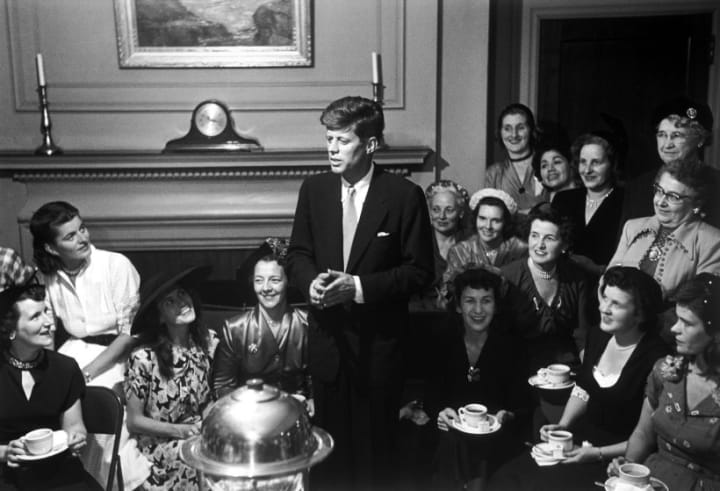
On a cold November morning, JFK was elected the 35th President of the United States and the youngest president that had ever been elected. A fresh, youthful face in the White House was just what America needed heading into such a unique period in history.
The world was changing. To make the U.S. a more unified country, it was necessary for a new way of thinking.
As president, some of his biggest accomplishments came later in his career. The disastrous Bay of Pigs Invasion plagued most of his first year in office. The CIA put together a military group of Cuban exiles who travelled to the United States after Fidel Castro took over the country. They were trained and funded by the CIA to overthrow Castro and his communist government. The plan put in place failed completely, which led to Jack’s distrust towards the CIA.
Where the Bay of Pigs was a military disaster, the Cuban Missile Crisis can be viewed as the pinnacle. During October 1962, American U-2 spy planes took photos of Soviet missile bases in Cuba. With the help of his brother and attorney general, Robert Kennedy, they proceeded to negotiate with the Soviet Union rather than make any rash decisions. The majority of generals involved did not want to follow the peaceful path but rather immediately bomb the missile bases. Both Jack and Bobby knew that would ultimately end in war and destruction for all mankind.
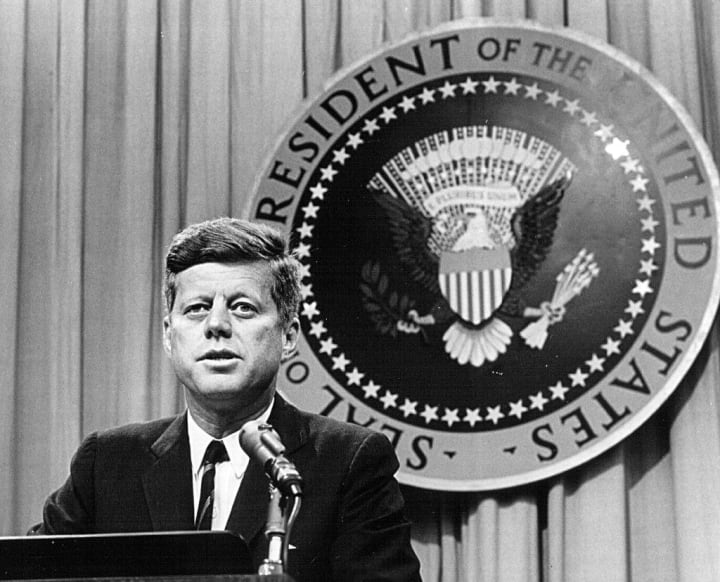
Their persistence paid off. By using a backchannel and offering the removal of U.S. nuclear weapons from Turkey, the Soviets agreed to remove theirs from Cuba. The world was saved.
Other notable highs throughout his short presidential career were advocating for equal rights and expanding the space program. These were issues he kept near and dear to his heart. After taking a neutral stand on civil rights, he dove in headfirst. He began with desegregating the south, increasing equal employment opportunities and integrating all schools. It didn’t solve all the problems, but it was a start and as much as he could do in his lifetime.
Born into a wealthy lifestyle, JFK was never going to run out of money. Most may not know, but he was an extremely charitable politician. He donated the entirety of the salary he earned during his 14 years as a member of the House and Senate (around $500,000). Following him to the White House, he also donated his presidential salary of $100,000. Most of his earnings went to charities like the Boy Scouts and Girl Scouts of America, the United Negro College Fund and the Cuban Families Committee.
Moving forward, Jack opened up America’s eyes. A better country was what they were capable of; not just what they dreamt of. Dreams had the makings of reality in his mind. Peace was achievable. He could easily mystify anyone who listened with his powerful words and calm demeanour. That’s why his death completely shattered a nation. Their hope for a better world was silenced.
His Death
There isn’t a moment in American history in which time stood still like the assassination of John F. Kennedy. Unanswered questions about the alleged assassin and security protecting the president inevitably arose. How could something like this happen within the United States? Who could’ve done such a thing?
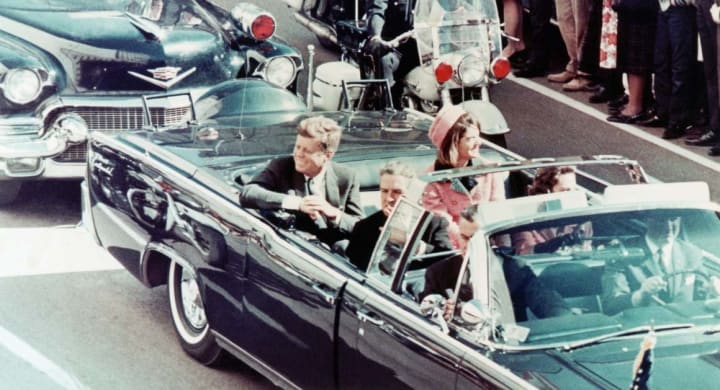
Why? The world could only stand still.
The days that followed the assassination were mournful. A country that had been filled with so much hope was now overflowing with tremendous grief. The title of the leader of the Free World would be passed on to a new ruler.
The funeral took place on a clear winter day in November. Many lined the streets of Washington to see the president be taken to rest. Those that couldn’t attend, watched it from any television set they could. The streets of the nation’s capital were packed with mourners; flags were hung at half-mast. It felt as though there was deafening silence covering the nation, a silence that would continue for the rest of eternity.
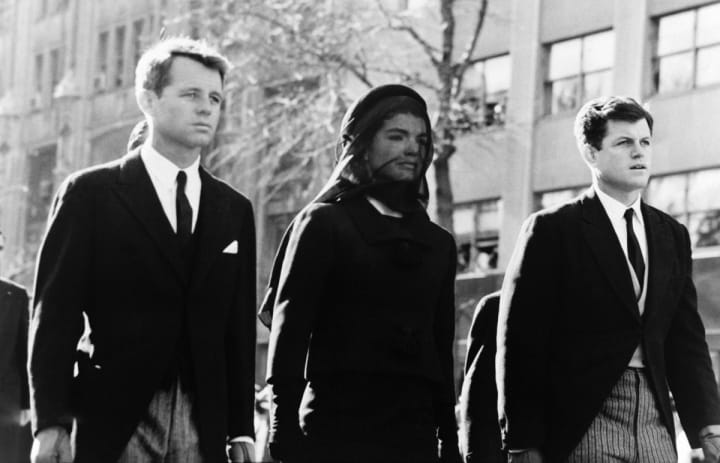
A Cultural Icon
How JFK became so recognizable that all would know him by just his initials is quite clear. He was apart of one of the most well-known families in history. America had such a love affair for the Kennedys. They exuded an aura of royalty wherever they went. And from a very young age, they were always in the spotlight.
When Jack was elected president, it was a new look for politics. His darling wife Jackie was even younger than himself. She was so highly educated and sophisticated that the regal-like quality followed them to the nation’s capital. The United States had never seen such a young and attractive couple in the White House before.
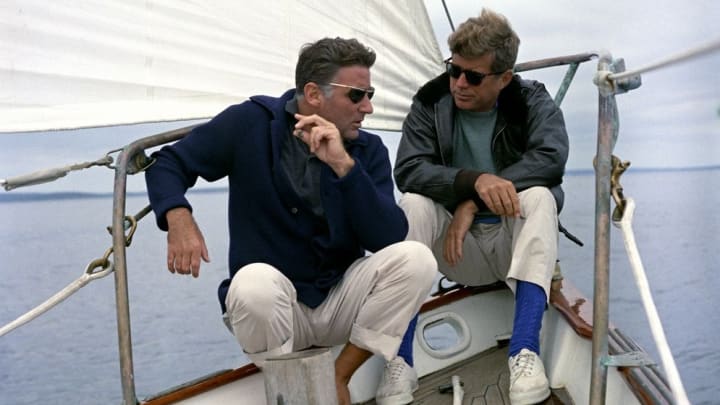
The two of them became tied closely with popular culture after word spread about the luxurious parties they would host. Powerful political leaders, artists and writers would all gather at the White House for special dinners. Some of their celebrity friends included Frank Sinatra, Sammy Davis Jr. and Gene Kelly. President Kennedy even had his 45th birthday party held at the legendary Madison Square Garden with Marilyn Monroe singing him “Happy Birthday.”
The pair’s appearance was another reason the public fanned over them. JFK didn’t spend hours a day choosing what to wear. His classic New England style came naturally to him. He embodied what being all-American meant. Regardless of the occasion, he almost always had his signature Ray-Ban sunglasses, skinny-tie and complementing separates. It was preppy before preppy was popular. Jackie established herself as an icon by wearing American designers. She made the pill-box hat and matching daytime ensembles a staple in every women’s closet.
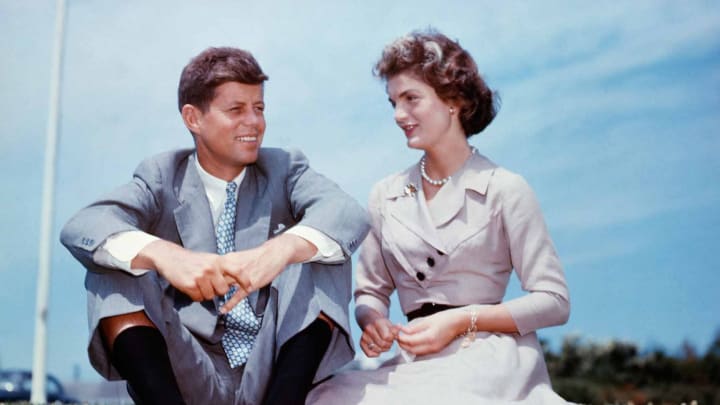
Jack and Jackie were both youthful, fashionable, and famed figures that whether you were young or old you wanted to be them. They were both polished, well-spoken; illustrious.
One of the most important things Jack did as a politician was use the media to his advantage. Throughout his campaign for the presidency, television was essential (just look at the first Kennedy-Nixon debate in 1960). As president, he would have all his press conferences broadcasted live as well as reserve time for live, breaking news from the White House. What better way for the entire country to see the president then by using television? At the time, television had developed into a staple in almost every American home and he knew this could be beneficial for him.
Camelot
In 1962, Jackie toured the White House with Charles Collingwood to show off the restoration she helped direct. This was filmed and then later broadcasted on Valentine’s day across CBS and NBC. It was the first time the American public was to see the $2 million project. The success of A Tour of the White House with Mrs. John F. Kennedy led to other sole female inspired documentaries like Elizabeth Taylor in London and Grace Kelly’s A Look at Monaco.
The film gave everyday women the ability to see how the first lady and the president lived. This was the place where they held their lavish parties that were thrust upon the front page of magazines. Thus, Camelot was born.
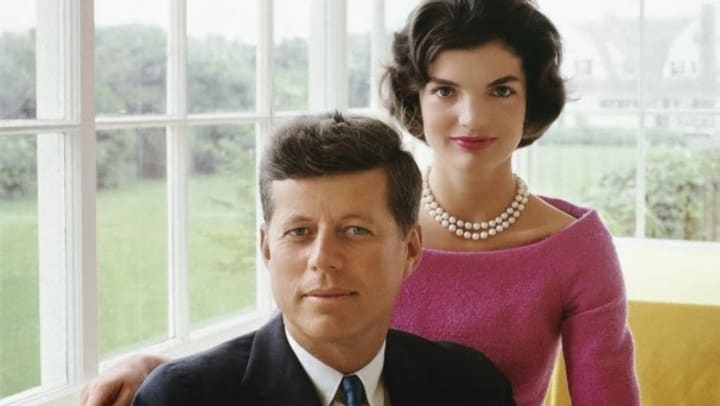
Jackie should be credited with cultivating JFK’s legacy. A week after his death, she met with Life magazine journalist Theodore H. White in Hyannis Port, Massachusetts. There, she told the reporter about Jack’s favourite Broadway musical, Camelot. Before bed on most nights he would listen to the songs, telling the tale of King Arthur’s impeccable rule.
Jackie’s main fear was over time everyone would forget about Jack. She wanted him to be remembered as a great leader. It’s astonishing to think that a week after his death she could flawlessly describe her experience with her husband in power and that it would last for decades. Camelot paints the perfect picture of JFK’s 1,000 days as president.
As it was put so eloquently by Jackie herself, “Don’t let it be forgot, that once there was a spot, for one brief, shining moment that was known as Camelot — and it will never be that way again.”
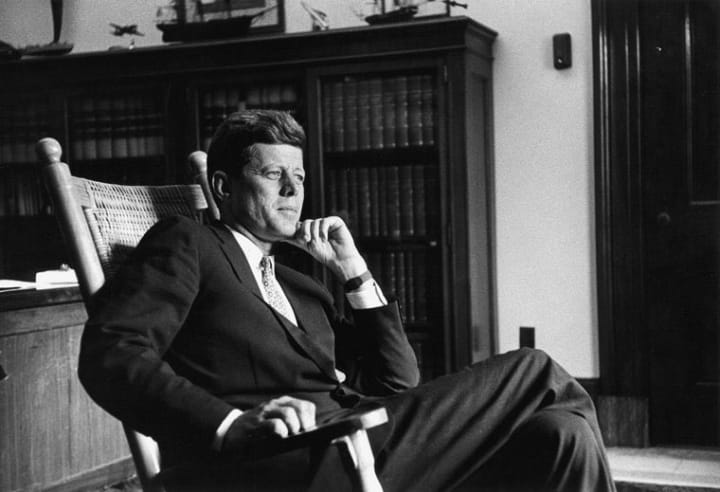
Those surrounding JFK recognized that the people were interested in all of him; not just the policies he was introducing. His personality and humour were able to reach audiences as consumers of the media instead of as voters. It’s been 101 years since his birth, and over 50 years since his death, yet JFK remains one of the most charming, naturally charismatic individuals to entrap the world in a time of chaos.
“A man may die, nations may rise and fall, but an idea lives on.”
Watch the accompanying video here:
